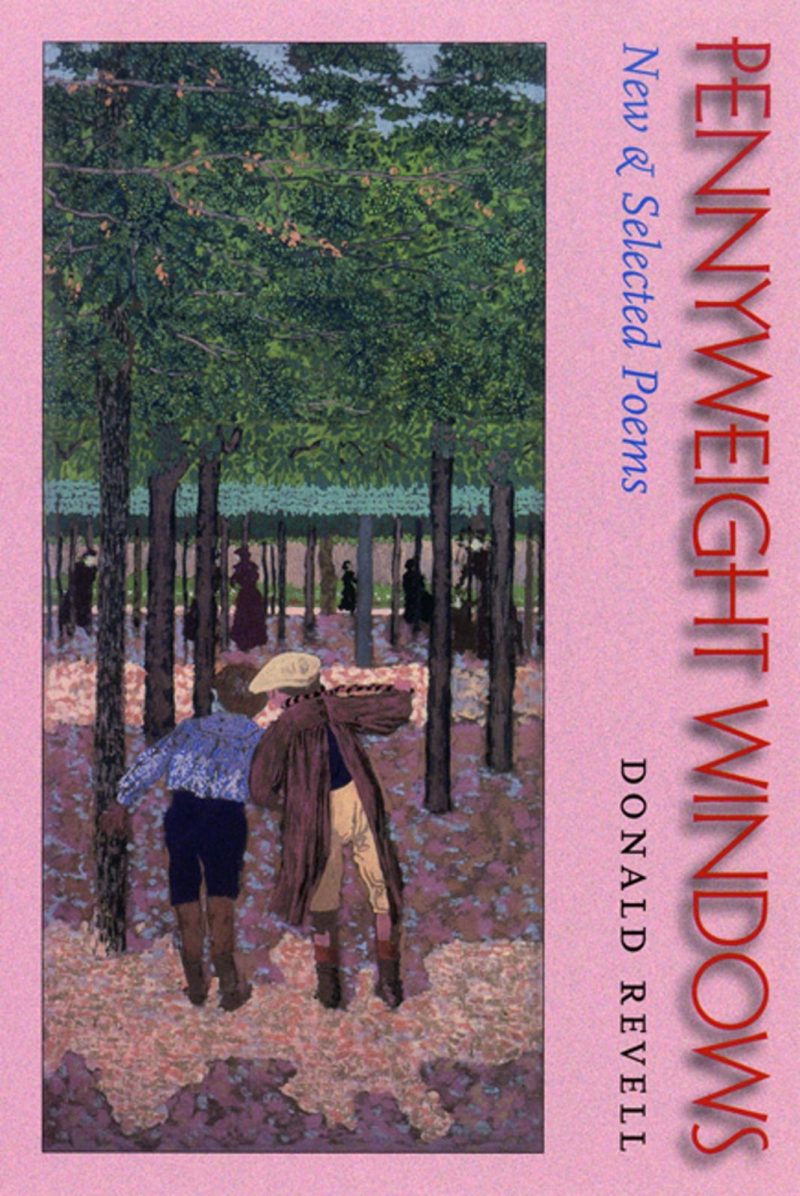Donald Revell’s spectacular new-and-selected amounts to three very good poetry books for the price of one—the first by a dejected urbanite who thinks he’s watching America, and his own private life, slowly collapse; one by a maker of puzzles, mazes, and spells; and one by an open-hearted, charitable, mystically inclined father, husband, and Christian believer who cherishes southern Nevada. I’d recommend any of those three on their own; the trio is irresistible.
Revell spent his early years watching urban decline; born in the Bronx, he attended graduate school in Buffalo, where he wrote about John Milton and John Ashbery. The Gaza of Winter (1988) reflected the elaborate syntax of those authors; the gloomy tenor of the Reagan-era Rust Belt; and an unmatched skill with consecutive abstractions. “Birthplace” called the Bronx “A place to be used, impossible really to love/ except as a thing survived, a scar.” The same poem made its neighborhoods an index for much larger disappointments: “These metal awnings,/ these Virgins tilting beside the failed trees and ashcans,” Revell’s verse argued, “pronounce the end of an idea: that people,// given the raw materials and time,/ will shape a place to their needs.”
Ouch. (No wonder Revell called his next book New Dark Ages.) Nor did his personal life, back then, look much better. A poem entitled “Privacy” invoked “The sons that I might have instead of money”; another poem advised rather wanly, “Let us love our lives.” But how? Parts of Beautiful Shirt (1995) and all of There are Three (1998) suggested answers. There, Revell constructed deliberately confusing works that sought to emulate visions, talismans, magic spells. Some of these works projected happier realms, spaces of “immediate/ rest and human things/ exempt from harm,” or ventured cryptic religious declarations: “Hilarious and undemocratic/ is every miracle.” Other poems depicted a happier household, one Revell shared with the poet Claudia Keelan.
Arcady (2002) consisted entirely of very terse, incantatory laments and elegies for the poet’s deceased sister. It also inaugurated his third style, one derived from philosophical idealism, from Christian belief, and from the desert Southwest (where Revell and Keelan now live). This confident, trusting, and trustworthy third style seems to claim, for presiding spirits, Thoreau, James Wright, and John the Baptist: “Jesus Christ is the next thing,” the last line in My Mojave (2003) read.
That volume’s sometimes joyful immanence, its xeric-landscape details, and its meditative and psalmic aspirations carry over into fifteen new poems. “Lords, resound like a cornet band/ Right across this mayhem,” “Clematis” asks: “Lords, assort the live from the dead shades,/ And move the flowers near.” (Since some folks associate strong Christian faith with right-wingery, I should add that Revell has penned superb verse about the folly of W.’s regime.) Several new poems are elegies, or prophecies, or both. One of the most personable (occasioned by a drowned mouse) recaps the journey Revell has already made. The poet prays, “aloud”: “Who made the iris to stand upright and walk with me/ All my life from house to house, from New York to Las Vegas,/ Could recreate a mouse a good swimmer and he would live.’”





